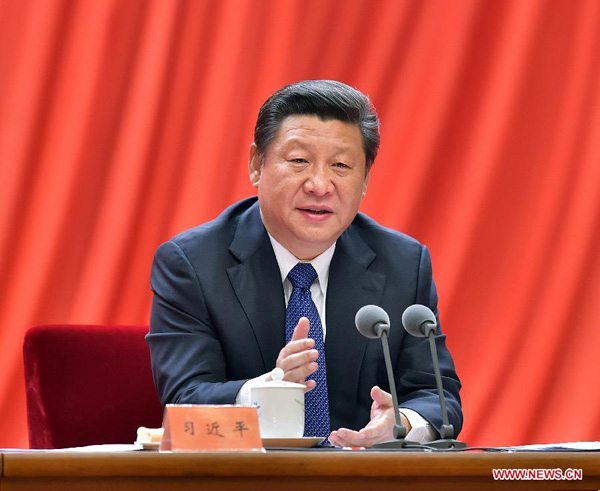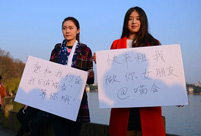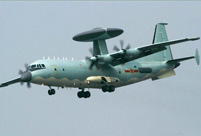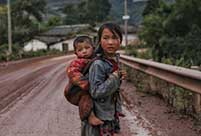

 |
| Chinese President Xi Jinping, who is also general secretary of the Communist Party of China (CPC) Central Committee, delivers an important speech at the fifth plenary session of the 18th CPC Central Commission for Discipline Inspection (CCDI) in Beijing, capital of China, Jan. 13, 2015. (Photo/Xinhua) |
BEIJING, Jan. 4 -- At the beginning of his term as the top leader of the Communist Party of China (CPC) in November 2012, Xi Jinping told reporters the Party's mission: To achieve the great rejuvenation of the Chinese nation.
On the road to rejuvenation, the central authorities have promulgated several new concepts, including the Chinese Dream, the Two Centennial Goals, the Four Comprehensives, and the New Normal of the Chinese economy.
In addition, over the coming five years development will be underpinned by the notions of innovation, coordination, green, opening up and sharing.
Significant achievements have been made across all sectors of governance in the years since Xi made his pledge to journalists. In just three years, Xi and the CPC leadership have successfully steered China closer to achieving this great vision.
THE NEW NORMAL
Economic development is integral to the great rejuvenation of the nation, however, complicated international and domestic economic circumstances have not made it easy.
Xi used the phrase "New Normal" in May 2014 when describing China's next period of economic growth. He went on to elaborate on the concept on various occasions, with questions around how to understand it, how to adapt to it and how to take advantage of it emerging as major queries the country must answer.
China strived to abolish administrative red tape and began to delegate power to lower authorities. This marked a major move in the readjustment of the existing economic structure. It was accompanied by the issuance of policies that support the supply-side reforms and promote innovation in all sectors.
The CPC central authorities have identified new macro-economic manipulation patterns, adapted to the new normal, and shifted its focus from demand to supply.
In fact, in recent days the central authorities convened a number of meetings on economic issues, including urbanization, poverty alleviation and urban work, showing that the central authorities are able to respond precisely to economic issues.
Innovation has, time and time again, been heralded as a prominent driver of economic development. Since the start of 2015, on average, over 11,000 new enterprises are established every day.
The country is also putting its full weight behind three major economic strategies, including the Belt and Road Initiative, which advances infrastructure links with countries in central western and southeastern Asia and other regions.
The coordinated development of Beijing and Tianjin municipalities and Hebei province will foster a new region of growth in China, while the plan to develop the economic belt along the Yangtze River will ignite a market worth trillions of yuan.
In addition, the Asian Infrastructure Investment Bank came into being after more than 50 countries flocked to support the financial institution. Moreover, there is the Silk Road Fund, which is accelerating the construction of free-trade zones, and China is creating a new world economic pattern with an open attitude.
China's GDP growth, with a rate of around 7 percent, is roughly the same as the total GDP of a mid-sized country, accounting for 30 percent of contribution to the world's total economic growth.
CRACKING HARD NUT
When the new leadership of the CPC Central Committee took office, they were faced with the challenge that the three-decade reform entered a deep-water zone. The remaining reform agenda would be hard nuts to crack.
During a little over three years, the CPC Central Committee, led by Xi, has focused on the continued reform and opening up which are crucial to the great rejuvenation of the nation.
Since the Third Plenary Session of the 18th CPC Central Committee held in 2013, China has rolled out about 330 reform measures involving 15 sectors.
Moreover, as of December 2015, 19 meetings by the Central Leading Group for Deepening Overall Reform had been held, all presided over by Xi.
Nearly 100 plans for deepening reform had been drawn up during the past three years.
The plans touched upon deep-rooted interest realignment which had long stalled, including judicial reform; fiscal and taxation reform; reform of the household registration (hukou) system; remuneration reform of state-owned enterprises, public hospital reform, rural land reform; and soccer reform.
At the end of 2015, Xi championed reform of the armed forces by 2020, vowing to reorganize the current administration and command system.
China opened three new pilot free trade zones (FTZ) Tianjin, Fujian and Guangdong in April 2015, 18 months after the first FTZ was established in Shanghai to help streamline the overloaded administrative approval system and encourage innovation and internationalization.
In January 2015, the State Council unveiled a plan to unify its two-tiered pension system in the hope of improving social equality by eliminating a major disparity between public and private employee benefits.
On Oct. 1, 2015, China began unifying three essential business certificates issued by three offices -- business licenses, tax registration certificates and organization code certificates as one certificate issued by one office.
The move has significantly simplified the registration procedure for businesses, thereby, encouraging start-ups.
Apart from reforms, the CPC Central Committee attached great importance to poverty reduction.
Addressing the Global Poverty Reduction and Development Forum in October 2015 in Beijing, Xi said that during his term he had invested the most effort in poverty alleviation.
To this end, the president used seven of his 26 domestic inspection trips to specifically target poverty, and another 15 involved related activities.
From 2011 to 2014, over 52 million -- almost the population of a medium sized country -- rural residents living in poverty were lifted out of poverty. There is now 70.17 million rural residents living under the poverty line.
CHALLENGES AHEAD
The CPC -- the world's largest political party, which is leading the world's largest population along a path beset with some of the world's greatest development challenges -- is confronted with challenges of its own.
Over the last three years, Xi and his administration have been making strides in Party governance.
The CPC leadership has stepped up to lead by example ensuring the whole Party have the will and drive to fight corruption and extravagance, as well as improve the official work style and tighten the bond with the people.
The fall of senior corrupt officials including Zhou Yongkang, Bo Xilai, Xu Caihou, Guo Boxiong and Ling Jihua has shown that no one has impunity.
The full coverage of discipline inspections by the central authorities and the fact that more than 140,000 officials were punished during the three-year frugality campaign have, once again, underscored the principle that the Party's code of conduct holds true for all.
The move to deal with the existence of "naked officials" whose families have relocated overseas is also being carried forward, with thousands of officials brought to task.
Three years on, the Party's campaigns remain powerful and effective.
The Party has been vigorous in improving intra-Party rules and regulations, with more than 30 measures introduced to streamline its organization, personnel and other systems.
As the Party's regulations cut their teeth, the awareness of the rules among Party members has increased.
Moreover, the Party has improved its work in leading China's economic development, with policies rolled out to unite society under the CPC leadership.
INTERNATIONAL ROLE
With the blueprint charted by Xi and his administration for major-country diplomacy with Chinese characteristics, China is making its presence felt globally.
China has shared its concept of the Chinese Dream and a bigger world dream with the world. It has also promoted a new type of international relations, which takes cooperation and win-win as the core.
The Silk Road Economic Belt and the 21st-Century Maritime Silk Road, proposed by Xi, received positive responses from 60 countries and international organizations.
Over the last three years, Xi spent 124 days visiting 40 countries throughout five continents. Also, more than 100 foreign heads of state and government leaders came to China.
More voices from China are being heard, China's international role is receiving greater attention, and China's "circle of friends" is constantly growing.
China must not be absent from international affairs, Xi said in his New Year speech Thursday, as the world is looking forward to voices and answers from China.
 "Rent me as your girlfriend!"
"Rent me as your girlfriend!" World's first 'underwater skyscraper'
World's first 'underwater skyscraper'  Top 10 weapons in the world in 2015
Top 10 weapons in the world in 2015 Are these the world’s scariest landing strips?
Are these the world’s scariest landing strips? In pics: Left behind children in China
In pics: Left behind children in China Eight modern day engineering marvels of China
Eight modern day engineering marvels of China Chinese beauty with sexiest bottom
Chinese beauty with sexiest bottom Charming female bodybuilders of Chengdu University
Charming female bodybuilders of Chengdu University Polish sports stars strip off for risqué calendar
Polish sports stars strip off for risqué calendar Top 20 hottest women in the world in 2014
Top 20 hottest women in the world in 2014 Top 10 hardest languages to learn
Top 10 hardest languages to learn 10 Chinese female stars with most beautiful faces
10 Chinese female stars with most beautiful faces China’s Top 10 Unique Bridges, Highways and Roads
China’s Top 10 Unique Bridges, Highways and Roads Dam difficult
Dam difficult Buried treasure
Buried treasure China’s sitcoms lack the bite they need to be successful
China’s sitcoms lack the bite they need to be successful Foreigners translate the subtitles of their favorite Chinese TV series
Foreigners translate the subtitles of their favorite Chinese TV seriesDay|Week